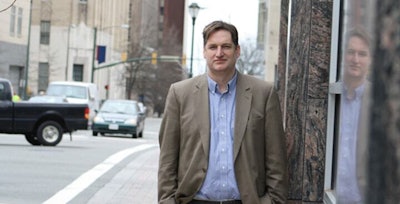This summer we have all been living and learning through an unprecedented crisis: literally the greatest disruption to daily life in the United States since at least World War II, a rapid economic collapse that is approaching and may exceed the scale of the Great Depression, deeply inequitable impacts from the crisis mapped into pre-existing inequalities of race and class, and a death count estimated at more than 130,000 and rising.
This pandemic is providing clear warning that our nation, and perhaps humanity as a whole, is on an unsustainable course. Without dramatic change we are all but certain to face future previously unimaginable crises, and dramatic change will require leadership.
As a professor in the Jepson School of Leadership Studies at the University of Richmond, the first undergraduate school of its kind, I’m often faced with answering the question, “What is leadership studies?” or “why are you in leadership studies?”
In the past I have offered this snap answer: “Because it’s a matter of life and death.” The current crisis tragically and vividly illustrates this.
 Dr. Thad Williamson
Dr. Thad WilliamsonEffective and ethical leadership tends to promote human flourishing, while inept or unethical leadership can lead to death, carnage, even social collapse. I would be negligent as an educator if I tried to paper the current crisis over or provide false reassurance.
Many people will die unnecessarily before the crisis subsides. Decisions made or not made by leaders will impact its ultimate magnitude. On the other side of this collective trauma, we will be faced with the task of not just “healing,” but also repairing our broken institutions.
We can accelerate that work by using this time to discern what this crisis is teaching us, or reminding us of.
This crisis reminds us that our lives are defined by our relationships, and our connections with others.
It reminds us that life is fragile, and that the progress of human civilization to this point, while remarkable in many respects, is more fragile than we have been conditioned to believe.
It reminds us that our collective future — as a democracy, as a nation, as a species — is not assured.
It reminds us that we can’t simply run away from these profound challenges into our safe bubbles of privilege and hope to wait things out or live our lives as if the world were not burning.
These may seem like heavy and solemn reminders, but they are honest reminders that our future leaders are entering into a world where they are not promised security, prosperity or even life itself.
To use a well-worn but useful metaphor, we are indeed at sea in a ship encountering choppy waters, with a non-trivial risk of sinking; and we need not only skilled leaders to take the helms, we may need to actually rebuild the ship while we are still sailing it.
We need the most ethical, effective, and informed leadership and followership we can get, at every level and every layer of society.
So to our next generation of leaders, here is my advice:
Assemble your tools.
Critical reflection and disciplined empirical inquiry are tools that can help you grapple with the challenges before us. Supplement and augment these tools with substantive knowledge about specific topics, as well as other components of leadership studies, such as social psychology and formal ethics.
Find moments of inner peace.
When you can, use this time to find some moments to reflect. What is it that you want to learn, to know, to become, to make yourself as effective an agent, and as satisfied a person, as you possibly can be, given what you now know about the fragility of life, of our country, of our species? Then seek to organize your formal and informal education around your answer to those questions. And start doing it now.
If you have time and space to read, then read.
Read about what you care most about right now: whether it’s pandemic response, climate change, racism, poverty and inequality, or something else. Use this time to fuel a passion for learning; and when the opportunity presents itself, initiate action informed by that learning, no matter how large or small that action may be. In your own ways, you’ll be not only studying but practicing leadership, as well as doing your part to help our communities get through this.
Lastly, Choose Hope
There is the bare possibility that our circumstances could get better, because we have observed that in other times and places they have gotten better, even if imperfectly.
Choose hope, because we are not without power and agency to impact our collective situation.
Dr. Thad Williamson is an associate professor of leadership studies and philosophy politics, economics and law at the University of Richmond.















